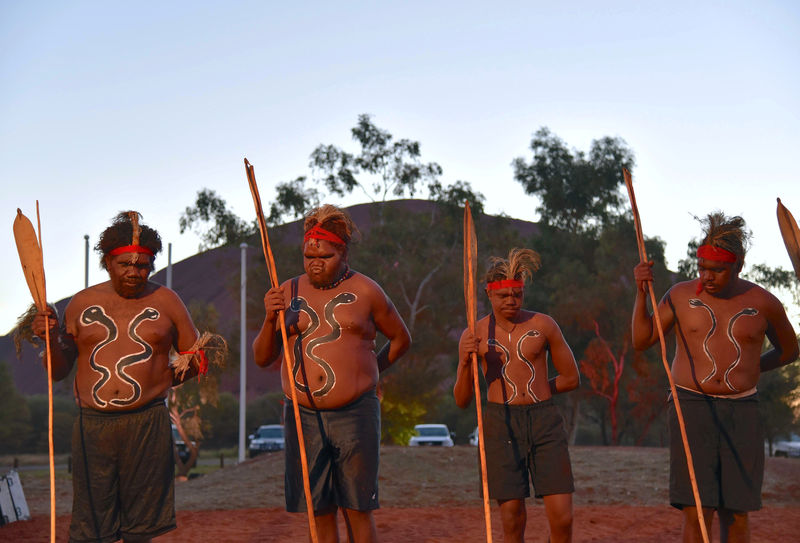By Joseph Hinchliffe
June 28 (Reuters) - Australia raised indigenous flags to fly alongside its national standard over its oldest public building on Wednesday, another step on a long and often troubled road to reconciliation with its Aboriginal and Torres Strait Islander people.
The flags, representing the oldest living cultures in the world, were raised as Australia marks the 50th anniversary of Aborigines being counted as part of the population, and the 25th anniversary of a milestone court case that paved the way for recognition of indigenous land ownership.
They were raised above the governor's house in Sydney, Australia's largest city and the capital of Australia's most populous state, New South Wales (NSW), where the fledgling colony was settled as an outpost of the British Empire in 1788.
"Aboriginal and Torres Strait Islander people are our first people," New South Wales Governor David Hurley said at the flag- raising, where a traditional smoke, or cleansing, ceremony was performed.
"You have fought and died alongside Australians under the Australian flag ... even before being counted as part of the population," he said.
Aborigines and Torres Strait Islanders make up 2.8 percent of Australia's population of 24.5 million but have disproportionately high rates of suicide and incarceration, ranking near the bottom in almost every economic and social indicator. the vote until the mid-1960s, they face a 10-year gap in life expectancy compared with other Australians and make up 27 percent of the prison population. The United Nations has criticised their living standards. has been a push for reconciliation in recent decades, a term to describe moves towards mutual respect and equal legal and social status between indigenous and non-indigenous Australians.
Patrick Dodson, one of Australia's most senior indigenous politicians, said the ceremony was "an indicator of progress at an institutional level".
"The redress of injustice travels slowly but inevitably," Dodson told Reuters.
Last month, indigenous leaders rejected symbolic recognition of Aboriginal people in the Australian constitution and instead called for a constitutionally enshrined indigenous voice in parliament. flags raised on Wednesday had previously flown over government house in Sydney for short periods but it is the first time in any state they have been installed permanently above a public building.
"The Aboriginal flag holds a special place in the lives of Aboriginal peoples - it talks to our connection to land, our culture and the strength of our peoples," NSW Aboriginal Land Council Chairman Roy Ah-See said.
